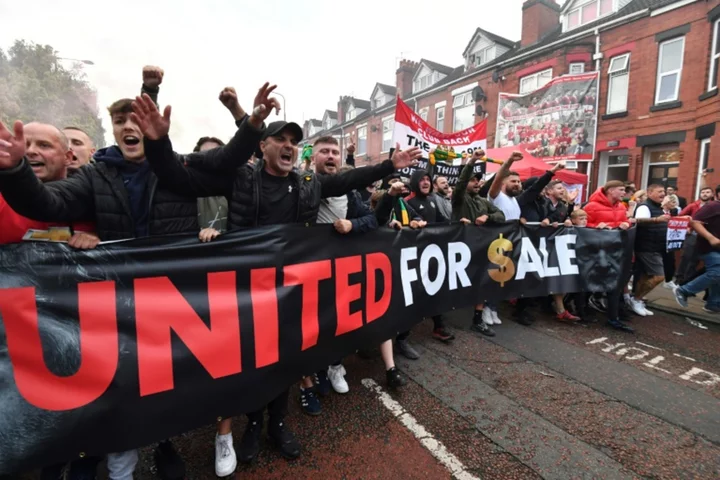
Man Utd sale saga leaves fans with more questions than answers
Nearly a year after Manchester United opened the doors to outside investment, British billionaire Jim Ratcliffe looks set to buy a 25 percent stake in...
2023-10-18 09:28
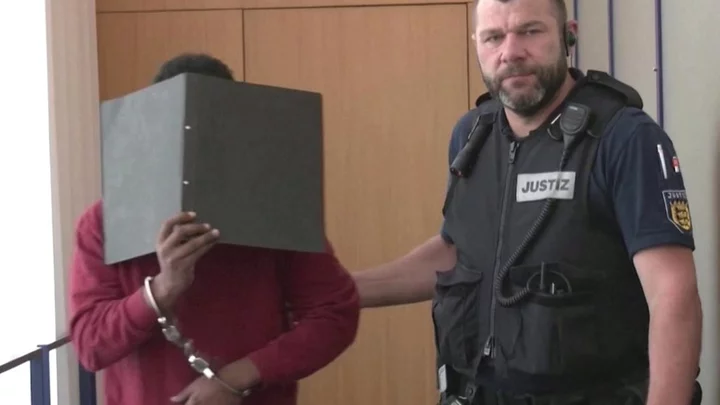
Man jailed for life in Germany for stabbing teenage girls
An Eritrean asylum seeker angry with officials murdered a girl and wounded her friend.
2023-07-04 22:47

No. 1 Georgia loses Bowers early, scores 27 straight to beat Vandy 37-20
Carson Beck threw for 261 yards and a touchdown and ran for a score as top-ranked Georgia shook off both an early kickoff and losing star tight end Brock Bowers to a left foot injury before halftime in beating Vanderbilt 37-20 Saturday
2023-10-15 04:49
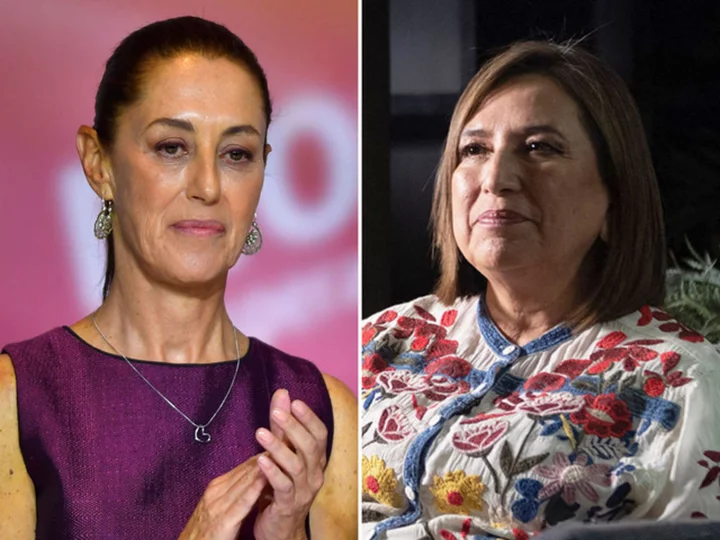
In the country of 'machismo,' a woman will be the next president
The governing party called it a ceremonial passing of the baton. But the opposition lambasted it as a "passing of the scepter."
2023-10-04 12:20
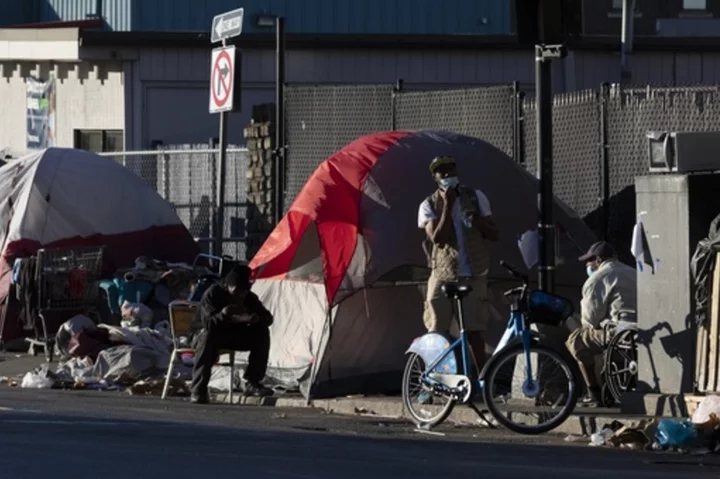
Boston announces new plan to rid city of homeless encampment, get residents help
Boston officials say a new plan to address homelessness includes giving police the power to remove tents and other makeshift shelters at an intersection where a sprawling encampment for the homeless has sprung up
2023-08-26 03:57
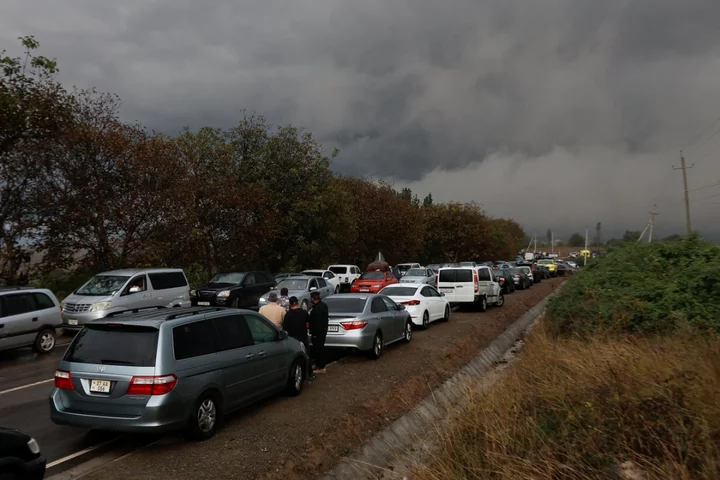
Thousands of ethnic Armenians flee Nagorno-Karabakh after Azerbaijan seizes control in lightning offensive
Thousands of ethnic Armenians fled Nagorno-Karabakh on Monday in lines of cars which stretched for kilometres, after Azerbaijan took control of the breakaway region sparking fears of persecution. Desperate residents of the main city sent videos showing families stocking up vehicles and sitting in long tailbacks which have brought the mountainous road to Armenia to a complete standstill. They told The Independent people chose to leave fearing abuse at the hands of the Azerbaijani authorities and a burgeoning humanitarian crisis as food, fuel, gas and electricity were increasingly scarce following a 10-month blockade. The Azerbaijani military routed Armenian forces in a 24-hour blitz last week, forcing the authorities of the breakaway region to agree to lay down weapons. They also agreed to start talks on the “reintegration” of Nagorno-Karabakh, also known as Artsakh, into Azerbaijan, after three decades of separatist rule. Azerbaijan has pledged to respect the rights of ethnic Armenians and to restore the supply routes they cut in December. But Artak Beglaryan, a former adviser to the self-declared government of Artsakh, told The Independent that people fear reprisals and ethnic cleansing and so “almost all the villages” and large parts of main city Stepanakert, which Azerbaijan calls Khankendi, “are emptying”. The leadership of Nagorno-Karabakh said in total nearly 7,000 people fled to Armenia on Monday alone. “They are fleeing because of the genocidal policy of Azerbaijan, the blockade, their aggression, and the failure of Russian peacekeepers to guarantee protection,” Mr Beglaryan added with desperation. “It is impossible to live under Azerbaijani subjugation. The Azerbaijani state and society is full of hatred of Armenians. “The international community is just looking at this and saying sorry. Nothing else is being done. We are frustrated with everyone. We are frustrated with humanity.” Siranush Sargsyan, a freelance Armenian journalist who also spoke to The Independent from Stepanakert, sent videos of lines of vehicles trying to escape. “I have never seen so many cars together, people are scared the roads will close and they won’t be able to leave so they are going now. And the other problem is food, it is hard to try to find to find something to eat,” she said. “Nobody wants to leave, we just want to have a life. If we know that we are protected we would stay but who is going to give us that guarantee?” She said the ethnic Armenians had suffered 10 months of “psychological terror” and starvation, because of Azerbaijan’s effective siege. Breaking down into tears, she accused the international community had prioritised their own economic interests over the lives of ethnic Armenians. “The whole world was silent because our lives were not as important as Azerbaijani gas. The world exchanged our lives for gas.” The world exchanged our lives for gas Siranush Sargsyan, a freelance Armenian journalist Both sides have been locked in a bloody battle over the mountainous Nagorno-Karabakh region since the collapse of the Soviet Union in the early 1990s. It is internationally recognised as part of Azerbaijan – which is backed by Turkey – but home to 120,000 ethnic Armenians who have enjoyed de facto independence since then. In 2020, a six-week war erupted during which nearly 7,000 people were killed Azerbaijan reclaimed swathes of region. Russia, historically a close ally of Armenia, brokered a truce and dispatched 2,000 peacekeepers. But in recent months Moscow has taken a step back since building stronger ties with Azerbaijan and Turkey after suffering crippling sanctions over its invasion of Ukraine. And so on Tuesday, the Russian-agreed true was broken by the Azerbaijan army who launched a 24-hour string of lightning strikes against the severely outnumbered and outgunned breakaway forces. The area had been struggling with a humanitarian crisis due to Azerbaijan’s blockade of the “Lachin Corridor” - the road connecting Nagorno-Karabakh to Armenia - piling on further pressure. Now thousands are on the move. Moscow said that Russian peacekeepers in Nagorno-Karabakh were assisting the evacuation. A second round of meetings between Azerbaijani officials and separatist representatives began in Khojaly on Tuesday after the opening meeting last week. The international community has been quick to urge Baku to protect the ethnic Armenians. On Monday, the German government said Azerbaijani had a responsibility to protect rights. The day before, French president Emmanuel Macron pledged support for Armenia and Armenians, saying that France will mobilise food and medical aid for the population of Nagorno-Karabakh, and keep working toward a ‘’sustainable peace” in the region. Meanwhile, the head of the US Agency for International Development, Samantha Power, visited Armenia Monday to “affirm US support for Armenia’s sovereignty, independence, territorial integrity, and democracy and to help address humanitarian needs stemming from the recent violence in Nagorno-Karabakh.” She was joined by US Department of State acting assistant secretary for Europe and Eurasian affairs Yuri Kim. “The United States is deeply concerned about reports on the humanitarian conditions in Nagorno-Karabakh and calls for unimpeded access for international humanitarian organizations and commercial traffic,” USAID said. In an address to the nation Sunday, Armenian prime minister Nikol Pashinyan said his government was working with international partners to protect the rights and security of Armenians in Nagorno-Karabakh. Mr Pashinyhan has faced growing calls for his resignation over what demonstrators have said is his failure to protect Armenians in Nagorno Karabkh. Read More What is Nakhchivan? And after Nagorno-Karabakh, is this the next crisis for Azerbaijan and Armenia Thousands of Armenians flee Nagorno-Karabakh as Turkish president is set to visit Azerbaijan First refugees from Nagorno-Karabakh arrive in Armenia following Azerbaijan's military offensive What is Nakhchivan? And after Nagorno-Karabakh, is this the next crisis for Azerbaijan and Armenia First refugees from Nagorno-Karabakh arrive in Armenia following Azerbaijan's military offensive Aid shipments and evacuations as Azerbaijan reasserts control over breakaway province Azerbaijan send in food supplies to Nagorno-Karabakh after warning of humanitarian catastrophe Azerbaijan send in food supplies to Nagorno-Karabakh after warning of humanitarian catastrophe Stones thrown as Armenian protesters clash with police after ceasefire
2023-09-26 03:28
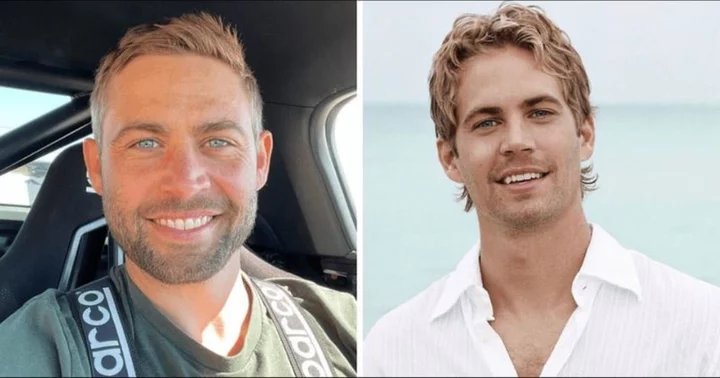
'I think more of his birthday': Paul Walker's brother Cody reflects on how he chooses to 'celebrate his brother's life'
Paul Walker died in a tragic car crash at the age of 40 on November 30, 2013
2023-12-01 08:53
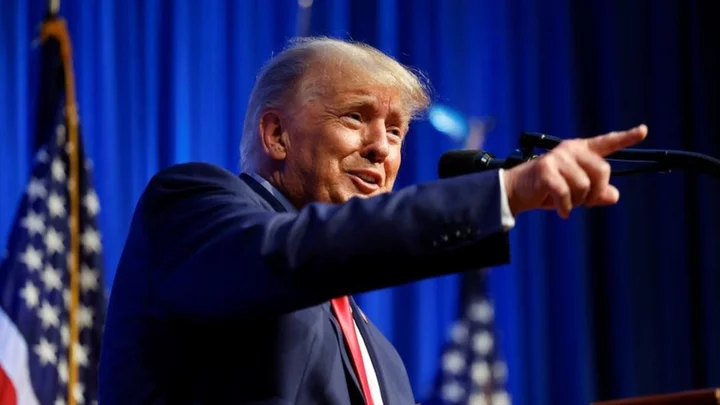
Donald Trump still headline act for Republicans, despite charges
The former US president appeared unfazed by his indictment at a party convention in North Carolina.
2023-06-11 15:21
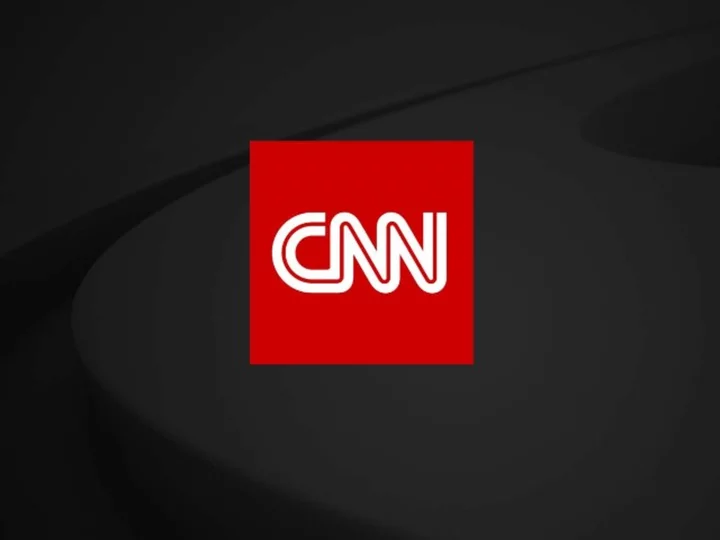
UN revises previous high Libya death toll
The UN has amended its previous death toll from the floods in Libya, according to a revised report updated on Sunday morning from the United Nations Office for the Coordination of Humanitarian Affairs (OCHA).
2023-09-18 06:51
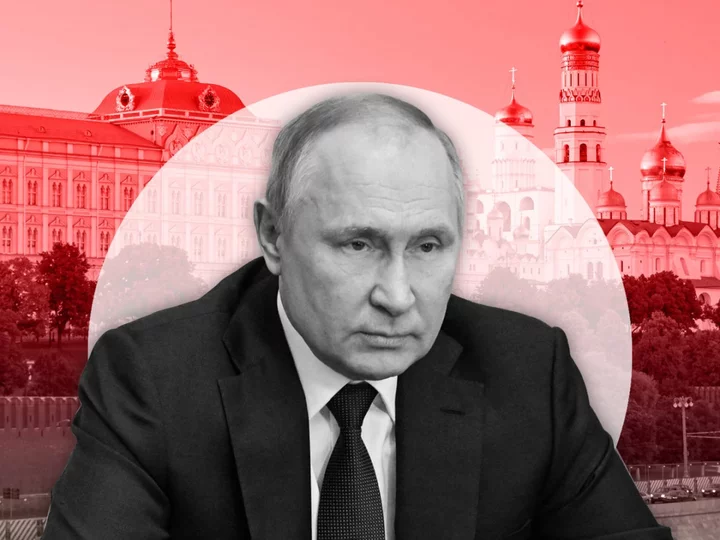
Moscow succession: What would happen if Putin dies?
Thyroid cancer, Parkinson’s disease, leprosy or declining in the aftermath of a stroke - just a few of the many unproven ailments rumoured to have afflicted the Russian leader in recent years. Just this week, the Kremlin were forced to deny rumours that Vladimir Putin had suffered a cardiac arrest in his bedroom, months after they were forced to deny that he had soiled himself. Since gripping the reins of power in 1999, Putin has established himself as one of the most infamous politicians in modern history, with a vicelike grip over Russia. His current term is set to expire next year, yet under sweeping changes to the constitution that were introduced in 2020, he could rule Russia until 2036. Yet since his invasion of Ukraine and the loss of tens of thousands of his troops, the fallout of his military gamble has caused cracks to appear for the first time under his 20-year leadership. Speculation has also dogged the ageing tyrant that his health is failing, with the future of Russia uncertain upon his demise. In June, he faced the greatest threat to his hold on power, after his former ally Yevgeny Prigozhin mounted an armed rebellion and called on his forces to march on Moscow to oust Russia’s military command. Once known as ‘Putin’s chef’, Prigozhin held great influence following the invasion of Ukraine as the owner of the Wagner private military contractor. His growing criticism of the military leadership made him a credible threat to Putin’s regime, with the dictator vowing harsh consequences for his “betrayal” and “treason”. Just two months after his aborted mutiny, Prigozhin died in mysterious circumstances while aboard a plane flying between Moscow and St Petersburg. While this dramatic opposition to the Russian leadership was swiftly quashed, it posed questions about the future of the country’s leadership, and who stands in line to replace their authoritarian leader. His family Unlike other dictators throughout history, Putin’s family are not in the running to replace him, with very few details known about their relationship with the president. Famously secretive about his personal life, his 30-year marriage to flight attendant Lyudmila Shkrebneva ended in divorce in 2013 amid speculation about his extramarital affair with retired gymnast Alina Kabaeva. While it is unknown how many children he has welcomed since the breakdown of his marriage, he had two daughters with Ms Shkrebneva, Maria Vorontsova, 36, and Katerina Tikhonova, 35. Neither have any involvement in politics, while he refuses to name his grandchildren in public, telling a reporter: “The thing is, I don’t want them to grow up like royal princes, I want them to grow up to be normal people.” During one of his rare personal interviews in 2015, he said of his daughters: “My daughters live in Russia and studied only in Russia, I am proud of them,” he said. “They speak three foreign languages fluently. I never discuss my family with anyone.” Mikhail Mishustin If Putin were to die or abruptly step down, the Russian Federation Council has 14 days to call early presidential elections. If it fails to act, the Central Election Commission would call it, while prime minister Mikhail Mishustin would serve as acting president in the interim. He is considered by some however to unlikely option to become a permanent placement, given his lack of popularity with Putin’s inner circle of ‘yes men’. According to the BBC, Mishustin had the “unenviable task of rescuing the economy but has little say over" the Russia-Ukraine war, with sources close to the Kremlin saying he was unaware of Putin’s intentions for a full-scale invasion. Speaking to The Independent, Dr Mark Galeotti said: “Constitutionally, he takes over when the president is dead or incapcitated, he would be incumbent. He’s a classic technocrat choice. I could see that happening, but there are other candidates who would fill the same niche.” Dmitry Medyedev Known as one of Putin’s closest allies, Dmitry Medvedev has been tipped as one of his potential successors. He had previously held the role of president from 2008 to 2012, before stepping aside in what was later revealed to be a prearranged deal. Once considered by the West as a moderate voice within the Kremlin, he has developed a reputation as Putin’s bad cop, referring to Ukrainians as “cockroaches” and making increasingly bellicose nuke-related threats.” The former law professor held the role of Prime Minister from 2012 to 2020, before becoming the deputy chairman of the Security Council of Russia. Over the years however, it is believed that his subservient role under Putin has weakened his own ability to consolidate power amongst Russia’s elite. Sergei Kiriyenko Other names mentioned to take the leadership helm include Sergei Kiriyenko, who has served as First Deputy Chief of Staff since 2016, and is known to be a member of Putin’s closest inner circle. With his involvement over the newly annexed Ukrainian territories, he is understood to have daily access to the president, and maintains good relations with all major key players among Russia’s political elite. Dismissing his chances of ever coming to the forefront of Russian politics however, Dr Galeotti said that he served better as a “backroom” operator. Sergei Shoigu Given the humiliating trajectory of the Ukraine war, Sergei Shoigu is no longer a likely choice to be announced as Putin’s predecessor, despite his position as one of Russia’s most influential men. The defence minister had once been voted the most popular politician after Putin, and is known to be close with the reserved leader, often spending summer vacations together. “Before the invasion, I would have absolutely said Shoigu, but his reputation has now been tarnished with the invasion,” said Dr Galeotti. “He’s still got relatively high levels of public support and trust, and he is a phenomenal behind the scenes operator. The days where he could have been president may be over but as a kingmaker, he could still be really influential.” Nikolai Patrushev The secretary of Russia’s Security Council, Patrushev has known Putin since they worked together in the KGB, and was a major strategist in both the 2014 and 2022 invasions of Ukraine. The 71-year-old is reportedly “one of the few figures Putin listens to”, while his son Dmitry has also been rumoured as a potential successor to Putin given his position as agriculture minister. Other suggestions have included Moscow mayor Sergei Sobyanin, former bodyguard Alexei Dyumin and chief of staff Dmitry Kozak. “It’s going to have to be someone who could create a coalition, who is able to be acceptable to both the technocrats and the security elite,” Dr Galeotti said. “It will quite likely not one be one of the big beasts, precisely because of the need to build a coalition.” “I think actually the Russian system will cope with the crisis quite quickly and swiftly and we’ll see the next political elite looking to end the war in Ukraine and the confrontation with the West. Putin will quite likely become the scapegoat for all that wrong.”
2023-10-27 13:29
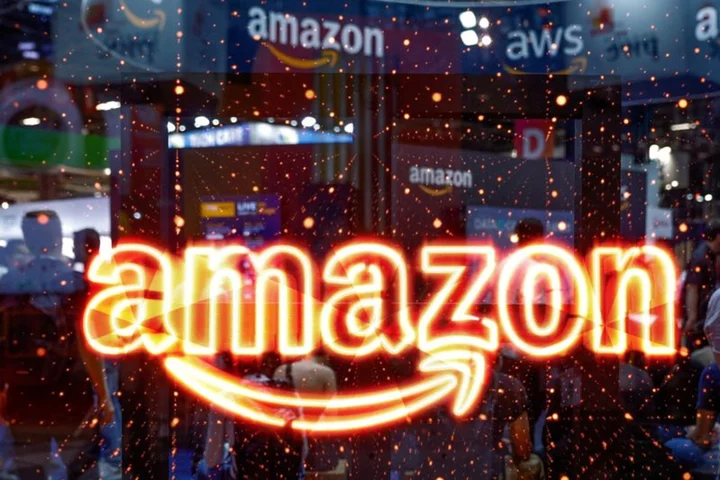
Exclusive-Amazon has drawn thousands to try its AI service competing with Microsoft, Google
By Jeffrey Dastin (Reuters) -Amazon.com’s cloud division has drawn thousands of customers to try out its service vying with Microsoft
2023-07-27 00:54
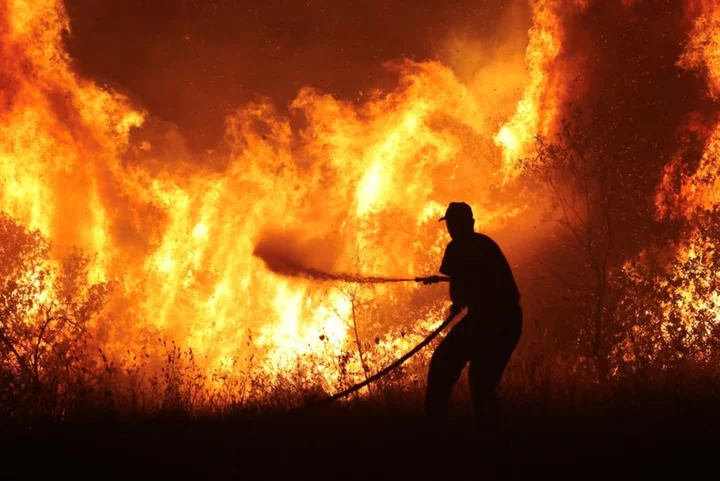
Greece orders fresh evacuations as wildfires erupt on mainland
By Angeliki Koutantou and Karolina Tagaris ATHENS (Reuters) -Authorities ordered the evacuation of a handful of communities in central Greece
2023-07-27 06:22
You Might Like...
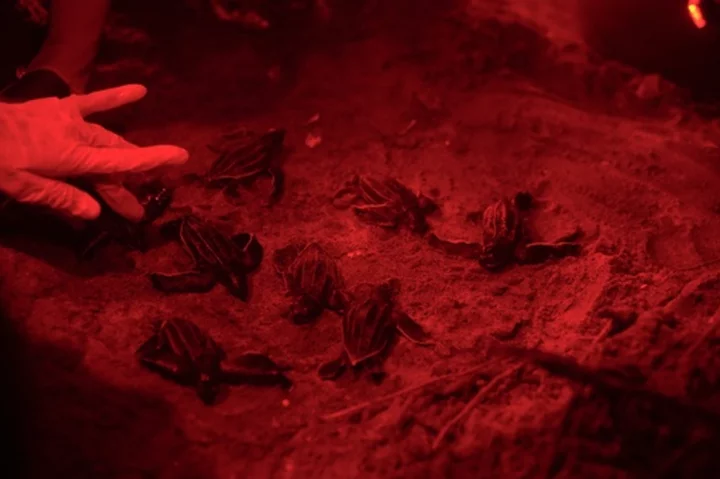
In Panama, legal rights given to sea turtles, boosting the 'rights of nature' movement
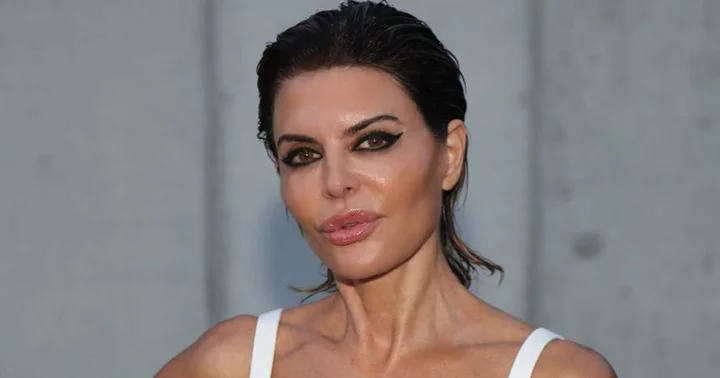
Why does Lisa Rinna want reality stars to ‘boycott’ BravoCon? Actress shares her thoughts amid ongoing SAG-AFTRA strike
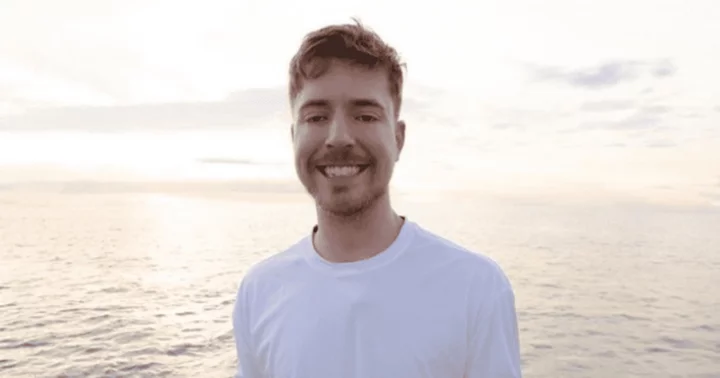
MrBeast 'living the life' he dreamed of as he extends gratitude to fans after smashing YouTube's day-view record, fans dub him 'GOAT'
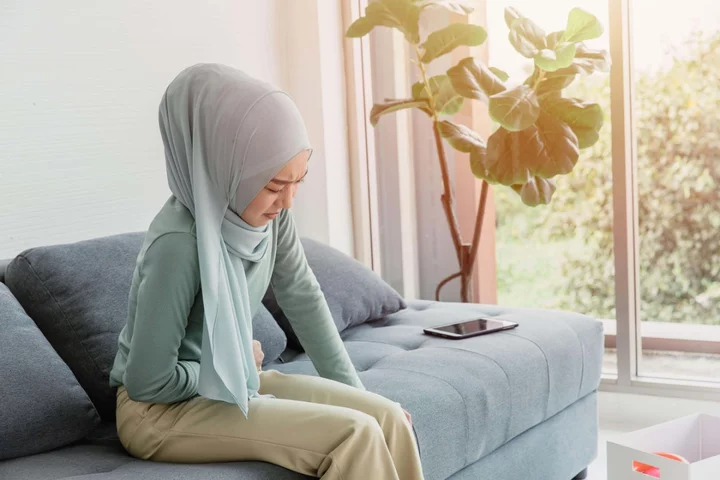
‘Millions of women and girls suffer severe pain’ during periods – research finds

Eight killed in Turkish air strikes on Kurdish-held zone in Syria -war monitor, security source
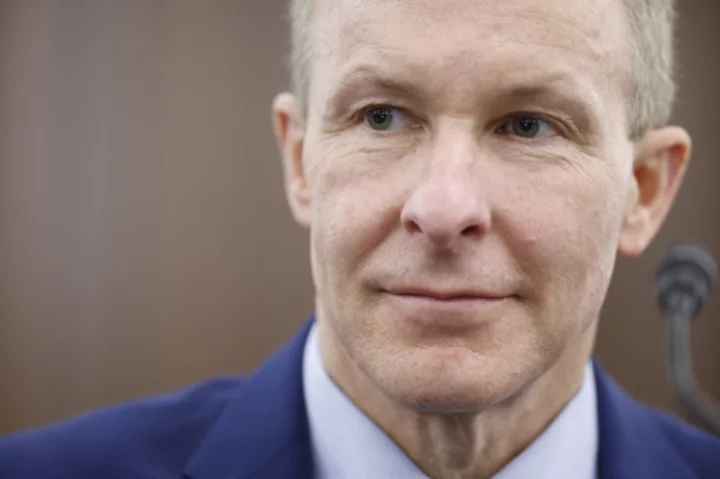
Passengers were stuck because United Airlines canceled their flights. The CEO took a private plane

What percentage of Maui fire is contained? Death toll on the rise as communities are reduced to ashes in Hawaii wildfires
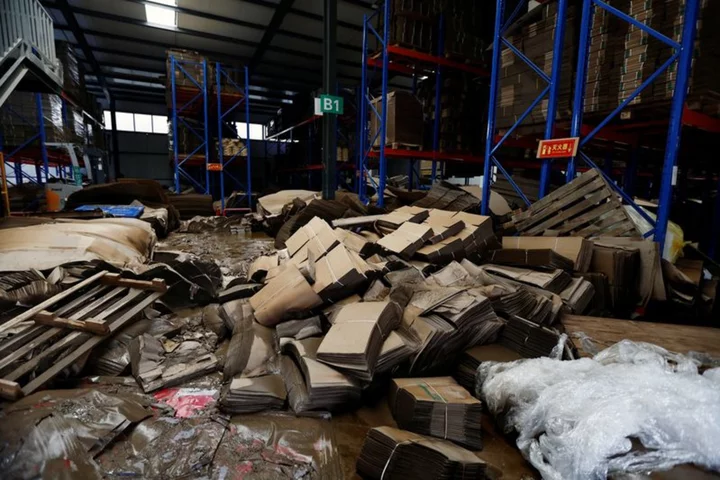
Factbox-Impact of floods in China after Typhoon Doksuri
